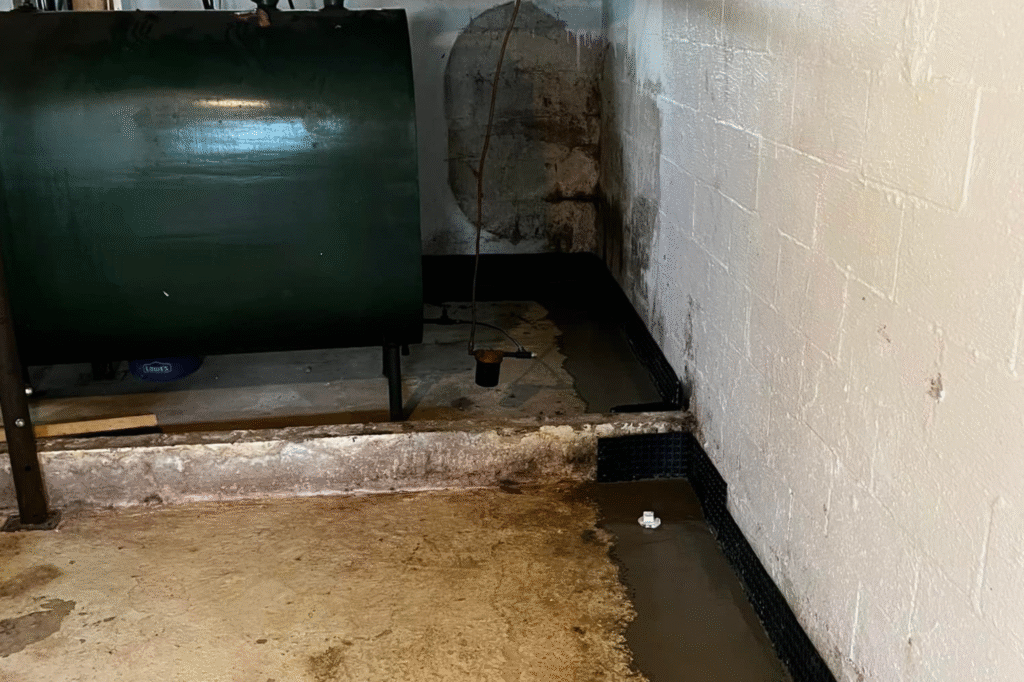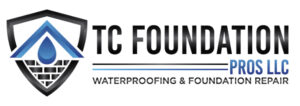Deciding how to handle basement water problems is a crucial decision for any homeowner in Pittsburgh. When it comes to Pittsburgh basement waterproofing, you can either rely on professional services or try to fix the issue yourself. Professionals offering Pittsburgh basement waterproofing services bring experience, the right tools, and proven techniques that thoroughly and permanently address water issues. They handle everything from interior sealants and drainage installation to exterior waterproofing and foundation crack repair.
On the other hand, DIY approaches such as applying waterproof paint or running a dehumidifier can seem like affordable, quick fixes. However, these methods are often temporary and may not address the underlying cause of water intrusion. While the DIY route might save money upfront, it carries the risk of leading to larger problems that will eventually require professional attention. This article walks you through the differences between these two approaches to help you make the best choice for your home.
Key Takeaways
- Professional basement waterproofing solutions in Pittsburgh offer lasting protection and are backed by warranties, providing homeowners with peace of mind and adding value to their property.
- DIY fixes often treat symptoms rather than causes and typically come without guarantees, resulting in short-term benefits.
- Investing in professional Pittsburgh basement waterproofing services protects your home from future damage.
- Improper DIY efforts can worsen problems, leading to expensive repairs down the road.
- Professionals bring knowledge and precision that ensure your basement stays dry and your home remains secure.
Understanding Basement Waterproofing
Many homeowners have heard of basement waterproofing but may not realize the comprehensive nature of the process. It is more than simply painting walls with a sealant. Effective Pittsburgh basement waterproofing involves creating systems that stop water from entering your home and damaging your foundation or living space.
Several approaches can be taken, including:
- Interior Sealants: These are coatings or injections designed to block leaks. They offer quick results but generally serve as temporary solutions.
- Interior Drainage Systems: Options such as French drains or sump pumps collect and redirect water away from your basement, effectively addressing water buildup over time.
- Exterior Waterproofing: This involves excavating around the foundation to apply waterproof membranes and installing drainage tiles, thereby preventing water from reaching your basement walls.
- Foundation Crack Repairs: Structural repairs seal cracks in your foundation, fixing the source of water intrusion and protecting your home’s stability.
Each of these methods has benefits and limitations. The best solution depends on the unique needs of your home. Knowing these basics is the first step to preventing water damage and keeping your basement dry.
Benefits of Professional Services
While DIY solutions might appear tempting, there are significant advantages to hiring professionals for Pittsburgh basement waterproofing services. When you choose experts, you are not only paying for labor but also their knowledge, experience, and quality results.
Professionals can thoroughly diagnose your basement water issues, identifying causes like poor drainage, foundation cracks, or soil pressure. This understanding allows them to recommend and implement the most effective treatment, whether it is sealing, drainage installation, or foundation repair.
Another benefit is the use of professional-grade materials and tools. This ensures a durable and reliable outcome that lasts for years to come. Professionals also provide warranties on their work, offering an additional layer of confidence that your home is protected.
Moreover, a properly waterproofed basement increases your home’s market value. Potential buyers appreciate homes that have been well-maintained and protected against costly water damage.
Cost Analysis: Professional vs. DIY
When considering basement waterproofing Pittsburgh, one common factor homeowners weigh is cost. Professional waterproofing may require a larger initial investment due to the high quality of materials and the complexity of the work involved. The price includes labor, materials, and any necessary repairs or excavation.
DIY approaches can be less expensive upfront, as you are mainly paying for the materials you install yourself. These might include waterproof paints, sealants, or a dehumidifier. However, DIY fixes often only provide temporary relief and do not address the root causes of water intrusion.
It is essential to remember that a poorly executed DIY project can exacerbate water problems, potentially necessitating costly professional repairs in the future.

DIY Waterproofing: An Overview
If you are considering a DIY approach to basement waterproofing, it is essential to understand what these solutions can and cannot do.
DIY methods generally focus on minor repairs and moisture control, such as:
- Applying waterproof paint or sealants to block small leaks.
- Sealing cracks with epoxy kits for temporary fixes.
- Using a dehumidifier to reduce dampness and discourage mold growth.
- Maintaining gutters and downspouts to direct rainwater away from the foundation.
- Adjusting landscaping to improve drainage around your home.
While these actions may help with small issues, they rarely solve serious water problems. Without professional inspection and diagnosis, underlying causes might be missed, allowing water damage to continue or worsen.
Challenges With DIY Solutions
Although DIY basement waterproofing may appear straightforward, it presents several challenges.
One of the biggest risks is misdiagnosing the problem. Treating only visible signs, such as a crack or damp spot, may leave the actual cause unaddressed, like soil drainage issues or hydrostatic pressure.
Additionally, DIY projects require time, skill, and patience. Some tasks, especially the installation of drainage systems, are complex and may be overwhelming for a homeowner without prior experience.
Another important factor is that DIY fixes generally do not come with warranties. This means if problems persist or worsen, the homeowner is responsible for all further costs.
Improper application of waterproofing materials can sometimes trap moisture in walls, promoting mold and structural damage.
Ultimately, DIY methods often only offer temporary solutions. For major water issues, professional waterproofing is usually necessary to ensure a lasting solution.
Making the Right Choice
Choosing between professional waterproofing and DIY efforts depends on several considerations.
First, evaluate the extent of your basement water problems. Minor moisture or small cracks might be manageable with DIY solutions. However, for serious leaks, foundation cracks, or recurring issues, professional waterproofing is the safer, more reliable choice.
Next, think about your budget, time, and skill level. Professional waterproofing is an investment that delivers durable protection, while DIY may save money upfront but could cost more if problems return.
Finally, consider your home’s future. Professionally waterproofed basements increase the resale value and appeal of your property.
Regardless of your decision, being informed and realistic about the scope of work required will help you protect your home effectively.
In Summary
When it comes to Pittsburgh basement waterproofing, the choice between professional services and DIY fixes depends on your specific situation. Professionals provide expert diagnosis, long-lasting results, and warranties that protect your home and investment. DIY methods may be suitable for minor issues but come with risks and typically yield only temporary results. TC Foundation Pros offers trusted Pittsburgh basement waterproofing services, delivering peace of mind and long-term protection for your home. If you have concerns about water in your basement, contact the experienced team at TC Foundation Pros to assess your needs and provide a customized solution to keep your home safe and dry.
